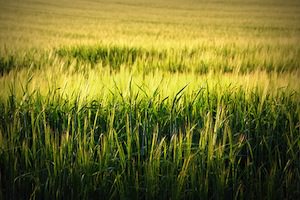Warsaw — Day 7: World ‘Neglects Climate Impact on Food’
Food security is a neglected area of efforts to tackle climate change, say scientists who think politicians are failing to take the problem seriously.
By Alex Kirby, Climate News NetworkThis piece first appeared at Climate News Network.
LONDON — Global leaders are failing to respond to the threat posed by climate change to the growing challenge of feeding the world, a leading agricultural researcher says.
They do not treat the problem seriously, and they are ignoring the warnings of science about what is liable to happen.
Yet, she says, there is much more evidence available than there was a few years ago, and the future it describes is cause for great concern.
The criticism comes from Dr Sonja Vermeulen, who heads the CGIAR research programme on climate change, agriculture and food security (CCAFS).
She was speaking to the Climate News Network as the UN climate negotiations – the 19th conference of the parties to the Framework Convention on Climate Change, COP 19 – got under way in the Polish capital, Warsaw.
Unsettling prospect
Dr Vermeulen said: “I think the COPs are moving too slowly, and global leaders are not taking the problem of food security under climate change seriously enough.
“They’re not sitting up and taking notice of Working Group II of the IPCC. I know that what we’ll get from that this time is a much larger body of evidence than in 2007 on food production – and the picture is not rosy.”
The IPCC, the Intergovernmental Panel on Climate Change, released the first part of its Fifth Assessment Report, AR5, two months ago. The second part to be published will be a summary for policy makers of a report by the Panel’s Working Group II, on impacts, adaptation and vulnerability to climate change. It is due to be published in early 2014.
A draft copy of the summary was leaked before the Warsaw COP began. It is liable to amendment before publication. The draft says that “climate change will reduce median yields [of the major crops, wheat, rice and maize] by 0 to 2% per decade for the rest of the century…in a context of rising crop demand projected to increase by about 14% per decade until 2050?.
Dr Vermeulen said some low-income countries now saw less hope of financial flows from richer countries through the Climate Convention process to help them to adapt to climate change. But CCAFS had published a report describing the success some of them had achieved in adapting by their own and their partners’ efforts.
“I believe a certain amount can be achieved by going it alone in this way”, she said. “But we do need to reduce emissions, otherwise there will always be a temptation, without an international agreement, to freeload on others’ actions.
Selective science
“We still hope the UNFCCC process will come up with a programme on agriculture. We need that guidance globally, and some areas – like the food trade – just can’t be tackled at a national level. “I’m trying all the time to be optimistic. There are some international funds available for smallholders, for example through the International Fund for Agricultural Development. It’s about US$300 m – not a lot, but there’s something there.
“Science does inform discussion at the COPs, but when politicians debate they cherry-pick what parts of the science to talk about.”
Delegates to the Warsaw conference, now in its second and final week, have expressed dismay at the failure to include agriculture and forestry in the current climate change negotiations.
They want people to move out of their silos of climate change, agriculture, forestry and urban land use and to address the question of how the world can produce enough food for nine billion people by 2050 without destroying the Earth’s forests and accelerating climate change.
Your support matters…Independent journalism is under threat and overshadowed by heavily funded mainstream media.
You can help level the playing field. Become a member.
Your tax-deductible contribution keeps us digging beneath the headlines to give you thought-provoking, investigative reporting and analysis that unearths what's really happening- without compromise.
Give today to support our courageous, independent journalists.






You need to be a supporter to comment.
There are currently no responses to this article.
Be the first to respond.